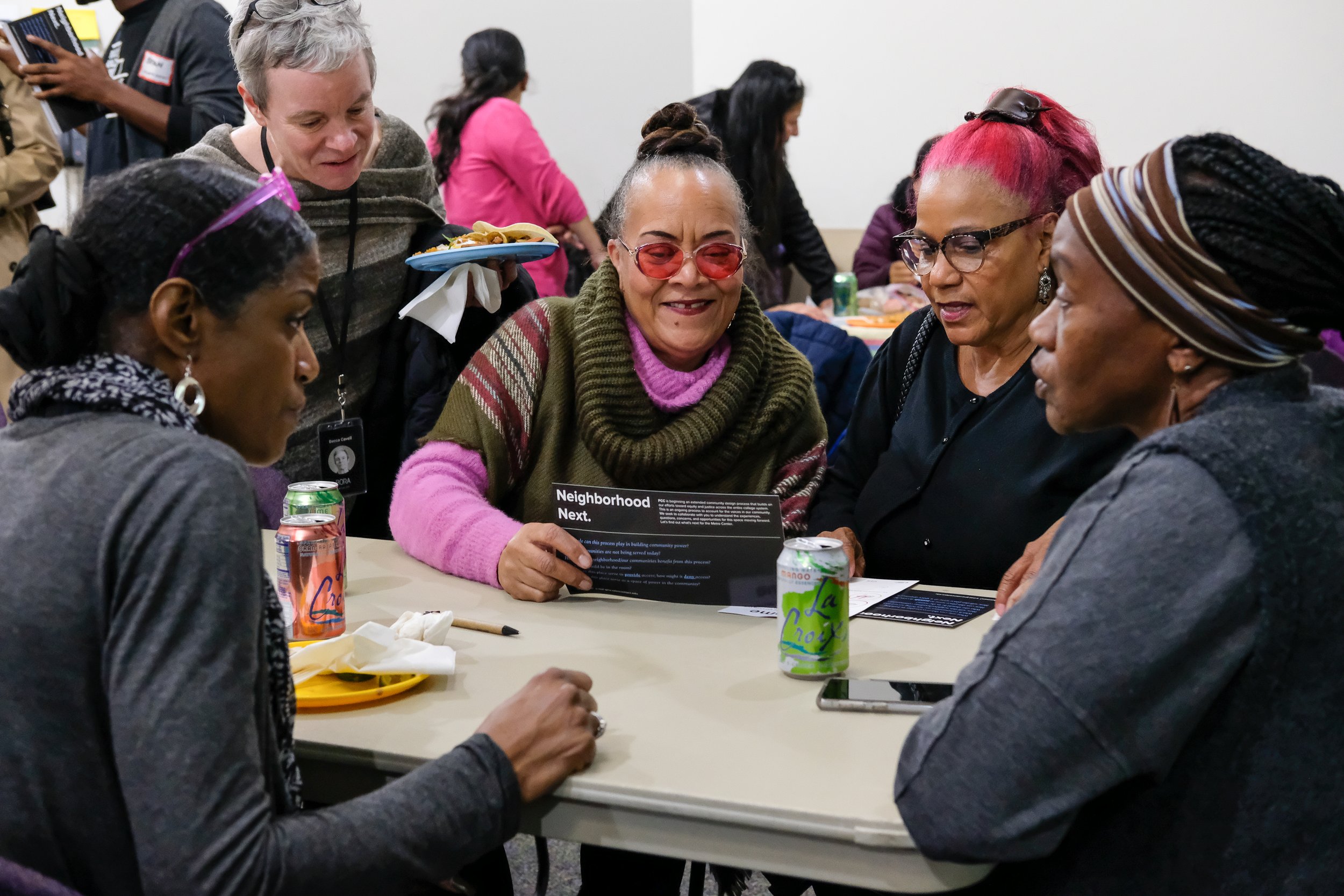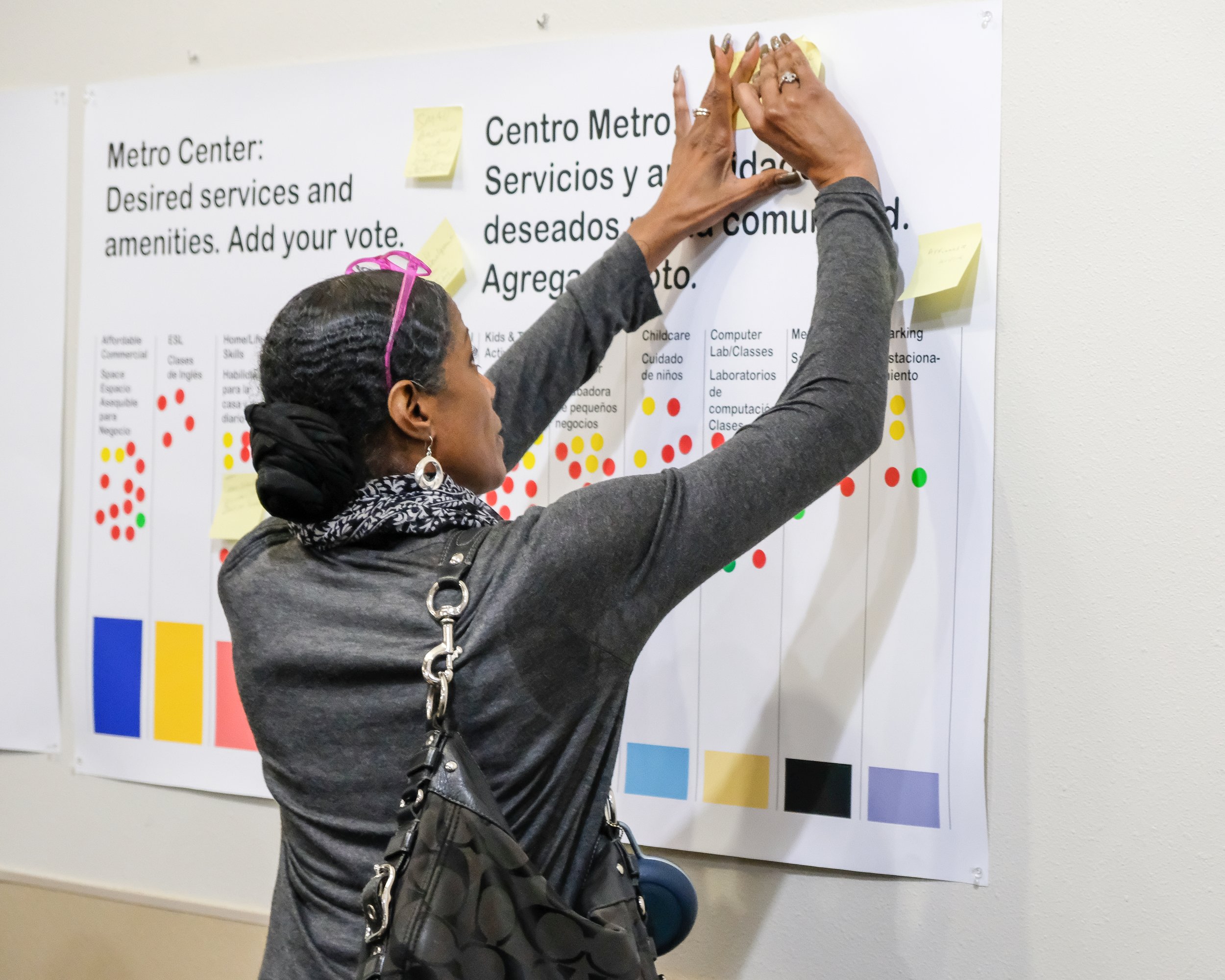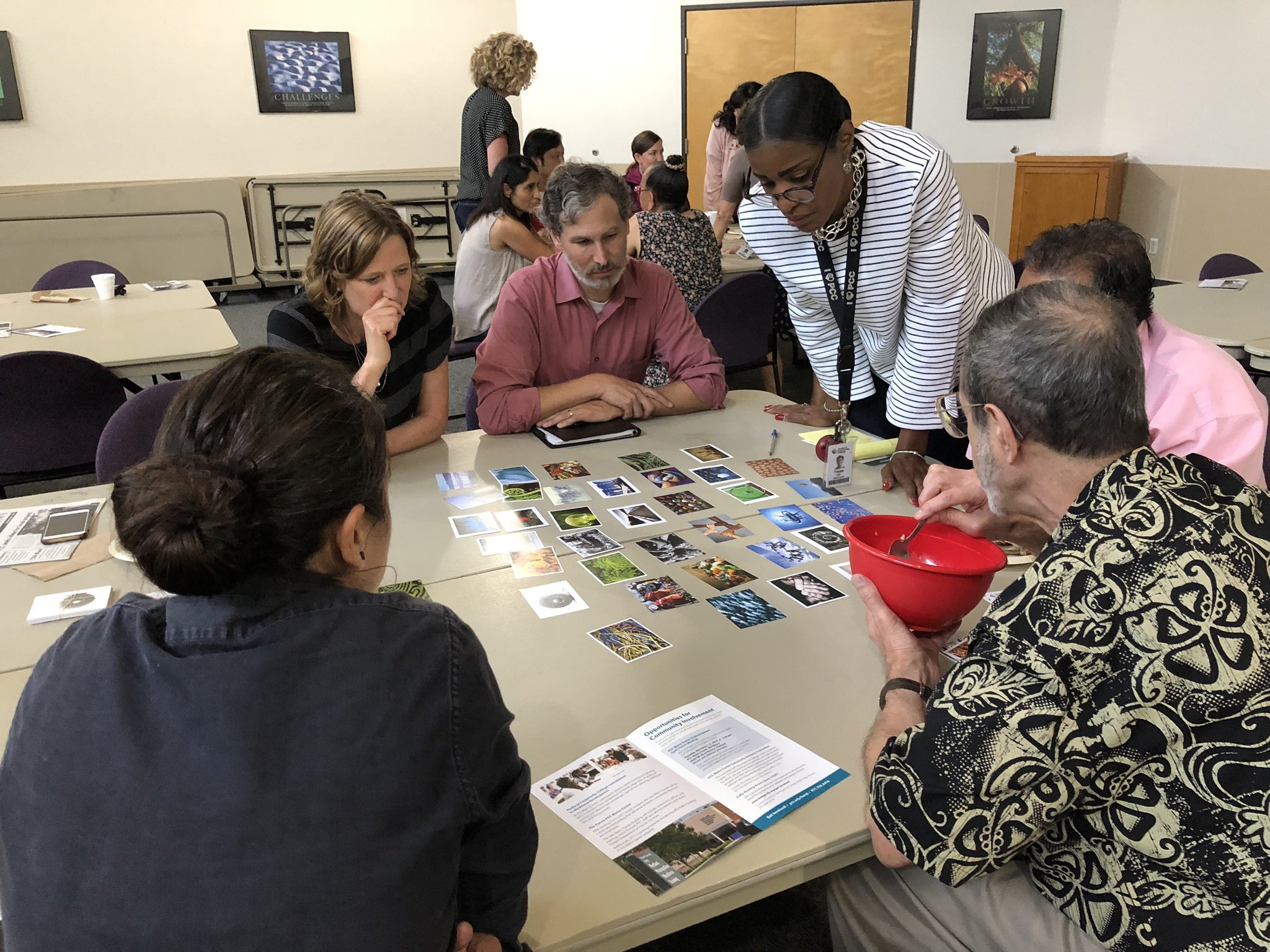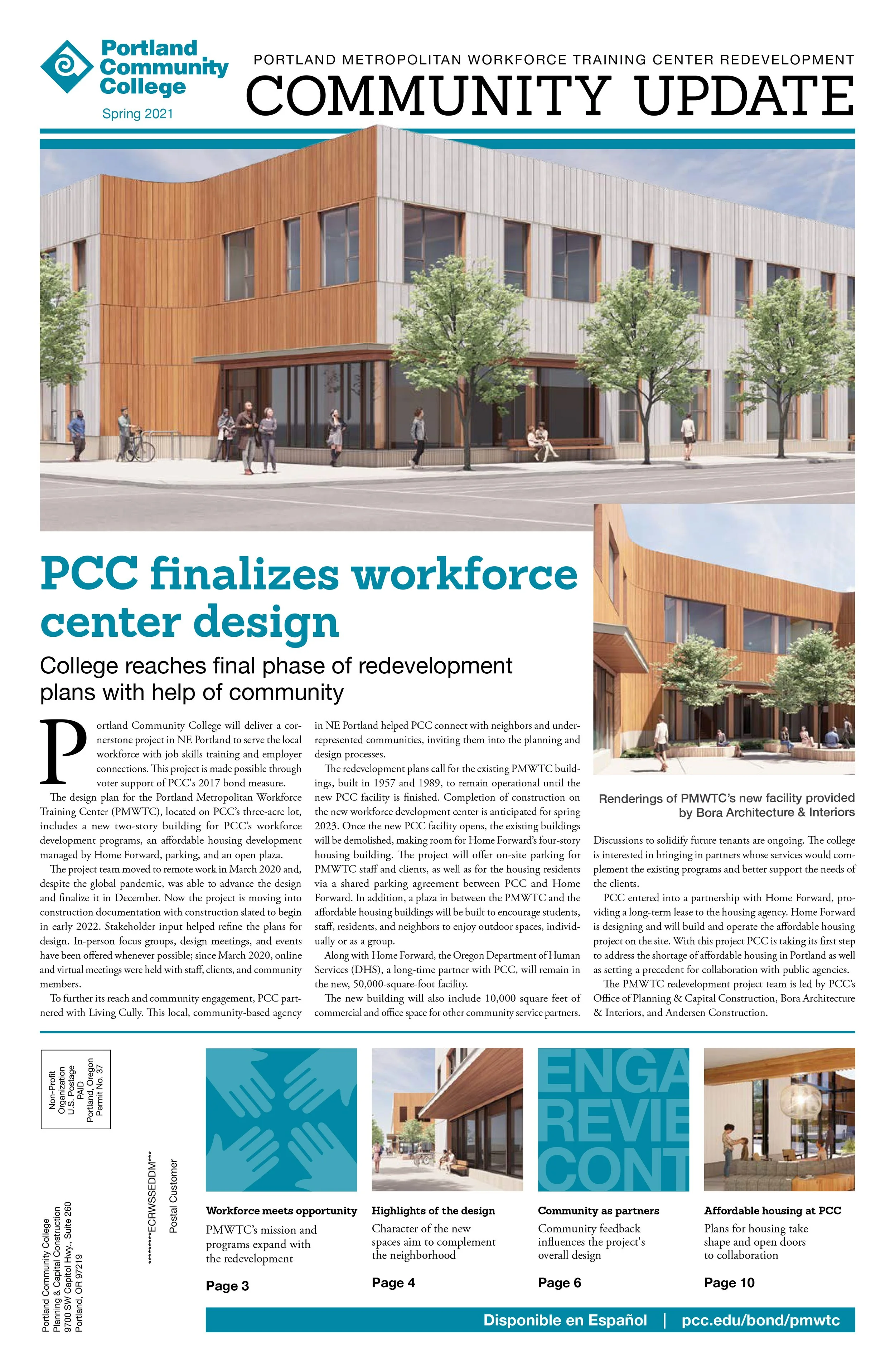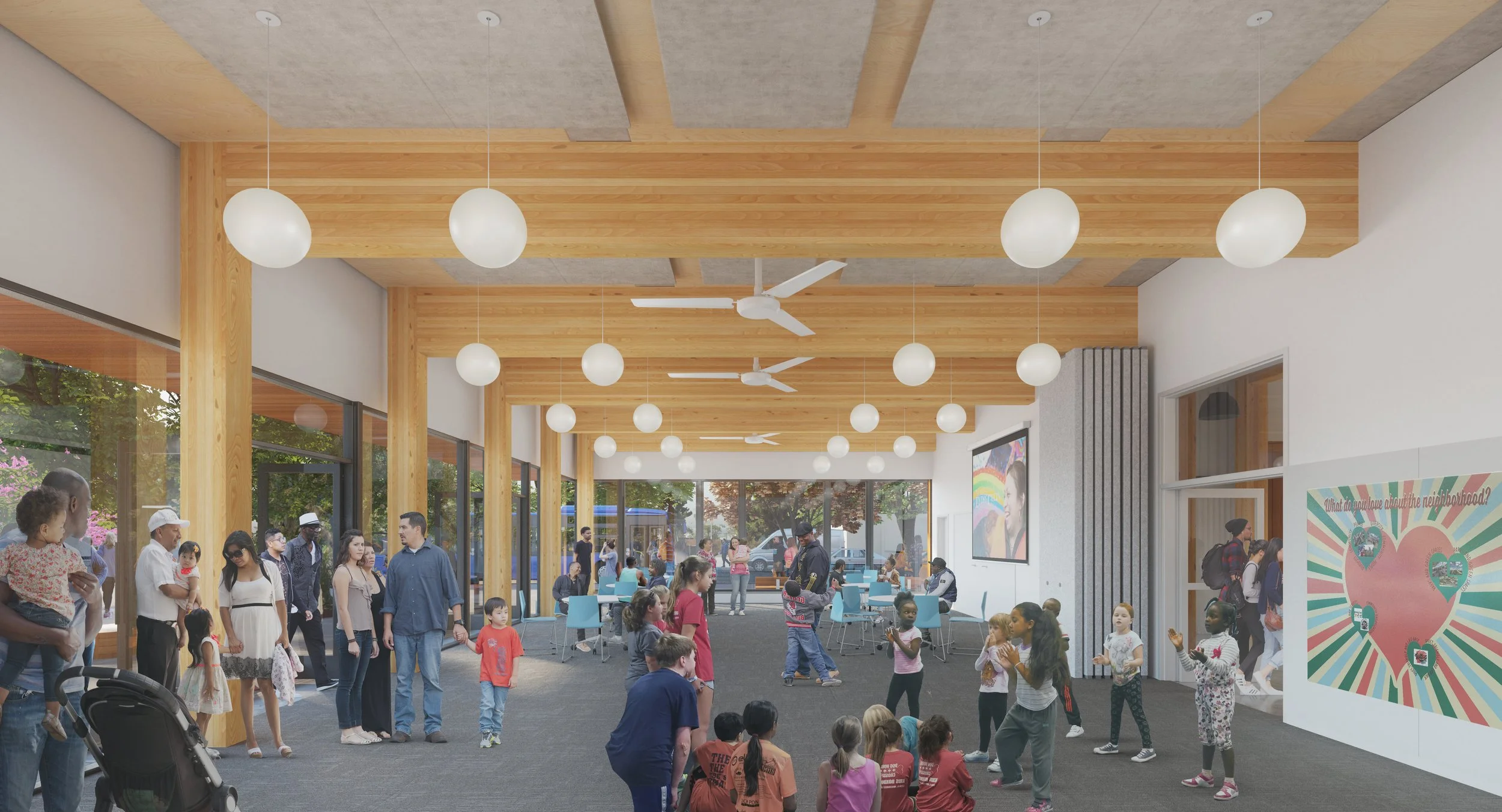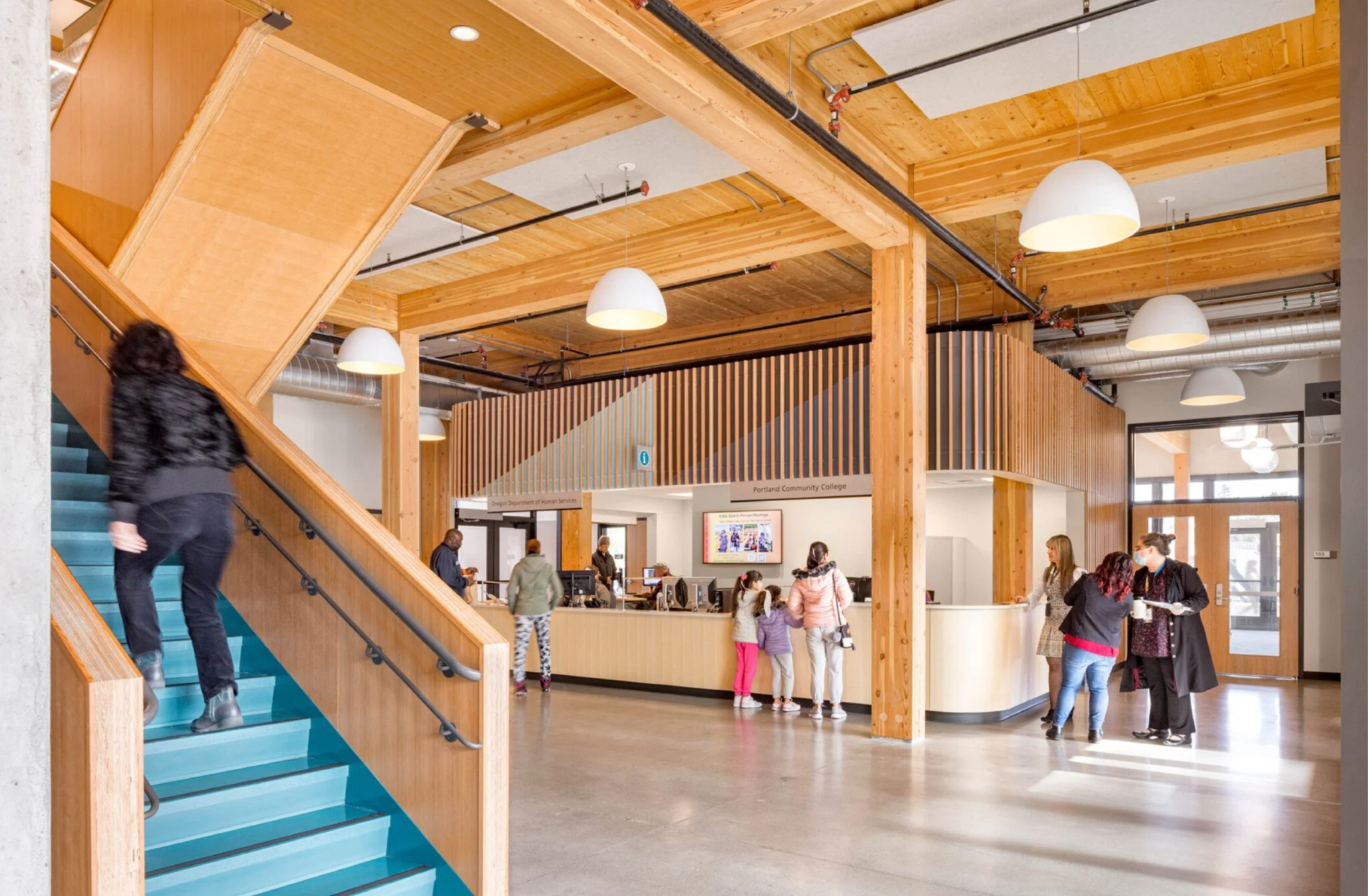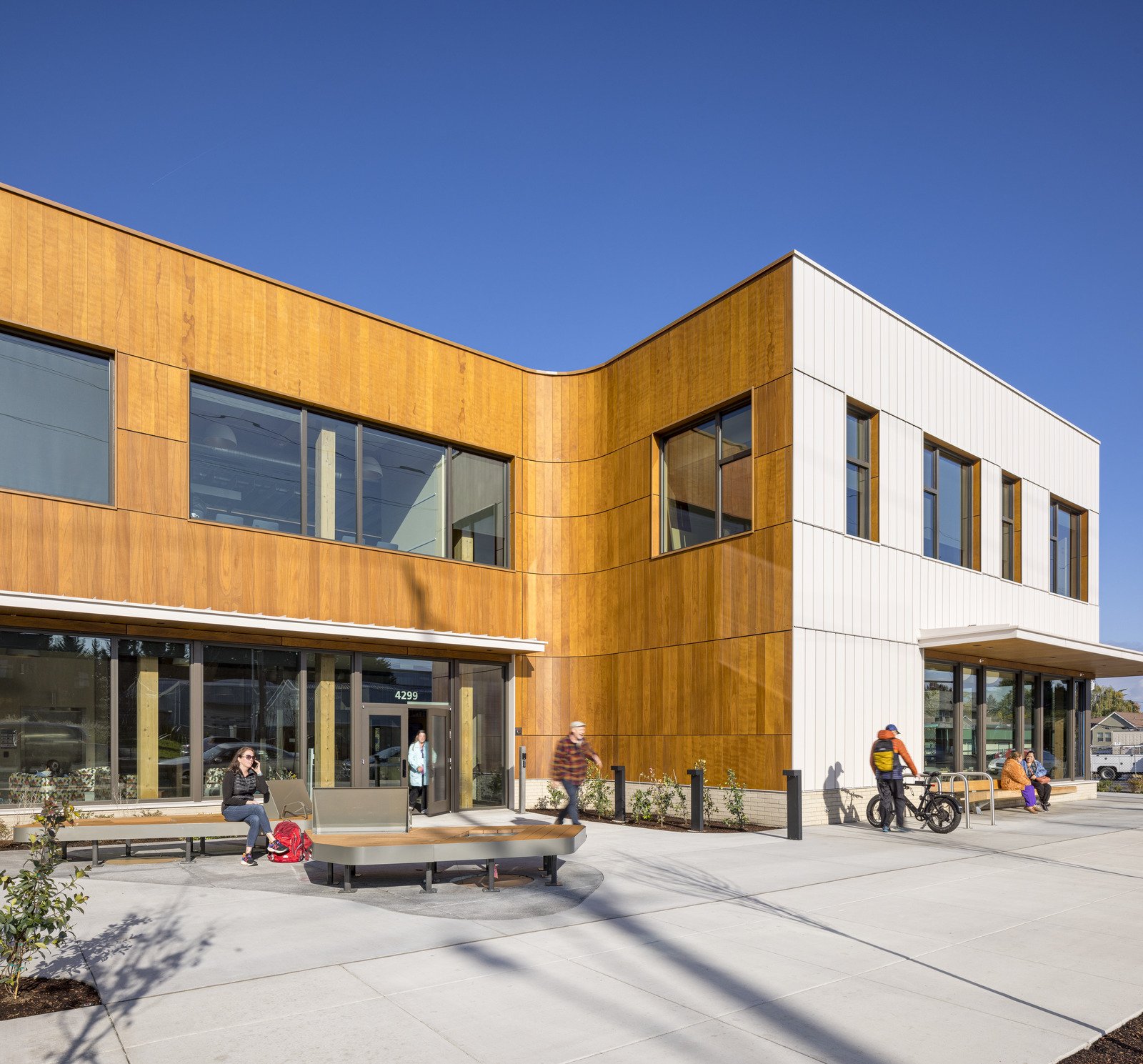
PCC OPPORTUNITY CENTER
The Portland Community College (PCC) Opportunity Center is a workforce training center in Portland, OR that will be an anchor for the community in Northeast Portland’s racially diverse Cully neighborhood.
PORTLAND, OR
Partners and Collaborators: Bora Architecture & Interiors (Lead Architect), AB Cultural Drivers (Community Engagement Partner), Amara Perez (Community Engagement Partner), PLACE Studio (Landscape Architecture)
Project Budget $32.5 M
Size: 50,000sf
Certifications: LEED Gold
-
Our robust outreach and organizing process went from in-person open houses to virtual with the emergence of COVID-19. To ensure neighboring communities were proactively informed of project updates and engagement opportunities beyond virtual forums, Colloqate published two editions of a graphic newspaper detailing our progress. Each edition was mailed to approx. 10,000 households.
-
2019 - 2023
-
02 Cease Implementation of Hostile Design
05 Center Community Leadership
06 Create, Protect, Reclaim Public Space
The Portland Community College (PCC) Metro Center in Portland, OR, is a workforce training hub serving the diverse Cully neighborhood. Replacing the previous facility, it provides a dignified space for educational and job training opportunities, particularly for low-income families. Designed with trauma-informed and design justice principles, the center fosters collective care, connecting to nature and celebrating cultural diversity.
Colloqate was involved in the design of the public spaces, advocating for the community's needs throughout the process. Key features include a long breezeway, accessible seating pods, and spaces for community interaction. The design prioritized accessibility, with wider walkways and charging outlets for electric wheelchairs. All to offer spaces for public gatherings and promoting social engagement.
Guided by Critical Race Theory and Design Justice, the project ensured inclusivity and accessibility, while Colloqate led Design Justice training for the project team to embed social justice in design decisions. The final deliverables emphasized functional public spaces, site furniture, and landscaping, creating a welcoming, responsive environment shaped by community feedback.
